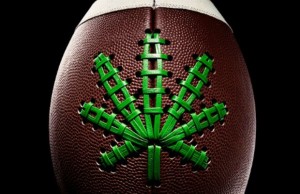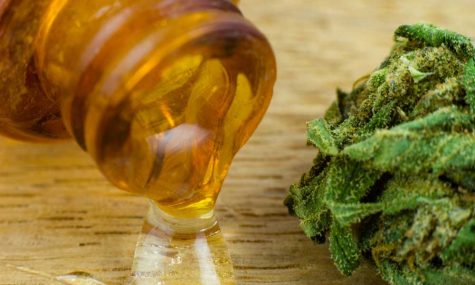College football player who uses cannabis for seizures is dismissed by NCAA
Since cannabis remains illegal under federal law, it is not legally allowed on-campus

An aspiring football player who uses cannabis to treat seizures is no longer allowed to play the game at his university, despite the fact he uses the drug for medicinal purposes.
Cannabis helps to control CJ Harris’s seizures, which effectively improves his performance. A student at Warner Robins High School, CJ played a big role in leading his school football team to the Georgia state championship game.
The talented football player experienced his first seizure at the age of 14. His family says that the natural treatment has proven effective thus far. However, local TV station WGXA claims the National Collegiate Athletic Association (NCAA) told him he is restricted from playing American football, even though the cannabis oil is medicinal-grade.
NCAA dismisses young epileptic player for using cannabis to treat seizures

Sports fans, lobbyists, and lawmakers aren’t sitting back and taking the decision lightly. Many have voiced their anger towards the NCAA.
CJ’s dismissal from the football pitch also puts a spanner in the works for next season, when he was supposed to play for the Tigers Auburn University.
“We urge the NCAA to review their existing guidelines on THC and explore possible exceptions to allow players under medical treatment, like CJ, the ability to fulfill their dreams of playing college football,” said the president and CEO of the Epilepsy Foundation, Phil Gattone.
“We hope the NCAA would reconsider their decision and assess CJ on his character and talent as a football player,” he added.
CJ’s father, Curtis Brown, told of his heartbreak when he informed his son of the news, describing it as “the hardest thing I’ve done.”
“You’re taking something away from a kid who’s worked so hard in his life to get there. And you’re just taking it away because he’s taking a medication that’s helping with his disability,” he disclosed to WGXA.
CJ and his father claim that they have been clear about the boy’s health requirements with the Tigers.
Medical cannabis oil helped reduce epileptic seizures
Following CJ’s first seizure, the frequency increased and they kept returning up to three times monthly. Once diagnosed with epilepsy, he was prescribed medication. Unfortunately, the medication didn’t work, which prompted his parents to explore the effects of cannabis for seizures.
“It’s hard because you don’t know if this is your last breath your child is taking. You just don’t know,” his father revealed to WDB-TV.
Brown said that his son last experienced a seizure at the beginning of January. Prior to this, his seizures had totaled 15. In mid-January, he began consuming CBD oil to relieve him of seizures, which is legal in Georgia and Alabama for this purpose. According to his father, the oil has had a positive effect so far.
“He’s going from having two seizures a month or one seizure a month, and now he hasn’t had any? That’s like, wow,” said Brown.
Cannabis is still illegal under federal law
 In spite of the success of using cannabis for seizures, CJ is unable to take lessons like his classmates. Since cannabis remains illegal under federal law, it is not legally allowed on-campus.
In spite of the success of using cannabis for seizures, CJ is unable to take lessons like his classmates. Since cannabis remains illegal under federal law, it is not legally allowed on-campus.
“I wake up every morning and I pray, ‘Please don’t let nothing happen today. Please don’t let nothing happen today,’” CJ said.
Based on NCAA guidelines, it is forbidden for any athlete to have tetrahydrocannabinol (THC) in their systems. This mind-altering ingredient produces psychoactive effects, unlike the non-psychoactive compound CBD (cannabidiol).
Specifically, the cannabis for seizures that CJ uses contains less than 0.3 percent THC. However, the NCAA will not pass his drug test if he is taking the medicine.









